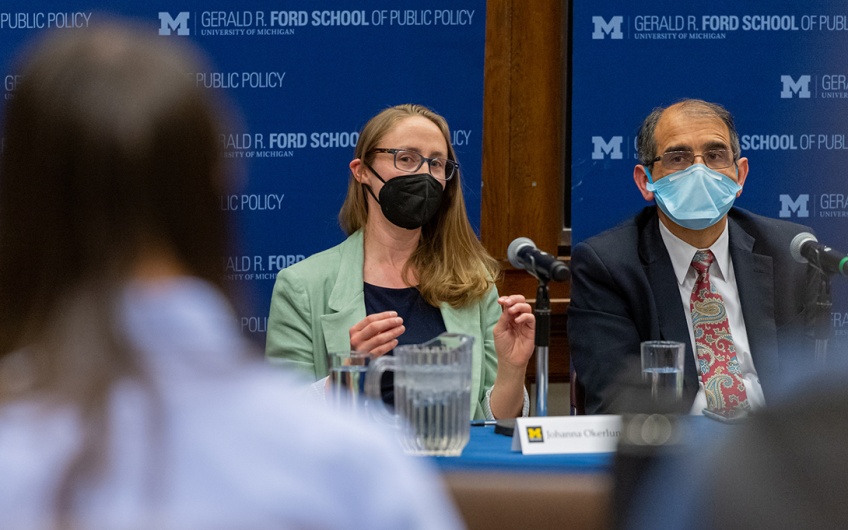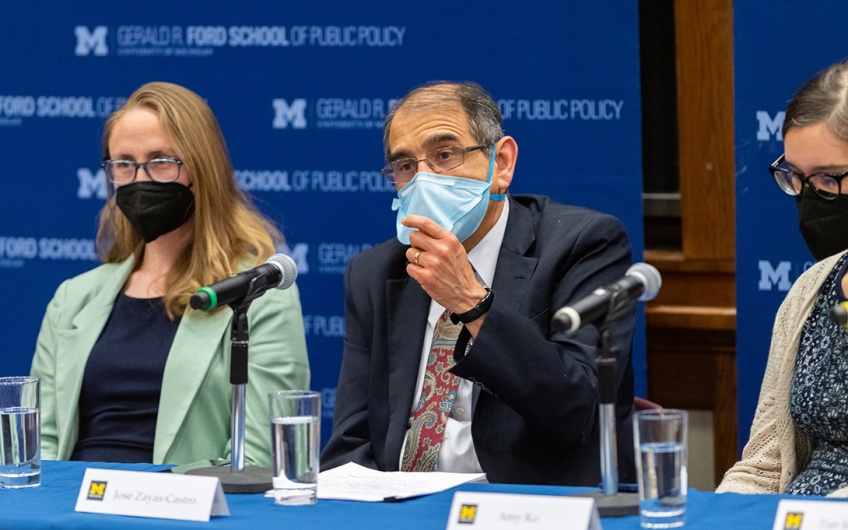Cultivating socially responsible engineers: The role of universities and public policy
4:30-6:00 pm EDT
Betty Ford Auditorium (and Live Streamed)
On March 21st, 2022, STPP convened for a panel discussion that will convene leaders in academia and government working in the field of public interest technology to discuss the role of universities and public policy in cultivating socially responsible engineers. They will focus on what needs to change in STEM education policy to center equity and justice in the training of the next generation of scientists and technologists.
This event was funded by a generous grant from the Public Interest Technology University Network.
Sponsors
This event was hosted by the Science, Technology & Public Policy Program and the Gerald R. Ford School of Public Policy, and co-sponsored by Public Interest Technology University Network, Michigan Institute for Data Science (MIDAS), Nuclear Engineering and Radiological Sciences (NERS), Michigan Engineering, Engineering Education Research (EER), Ethics, Society, and Computing (ESC), Women in Science and Engineering (WISE), ADVANCE, Sloan Equity and Inclusion in STEM Introductory Courses (SEISMIC), and BLUElab.
When I think about serving the common good, I think about serving people. Not just some people, but ALL people. This notion of equity-centered engineering is about how do we do a better job serving all people.
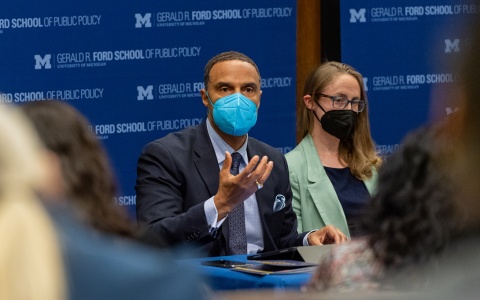
Alec Gallimore
University of Michigan
Our Panelists
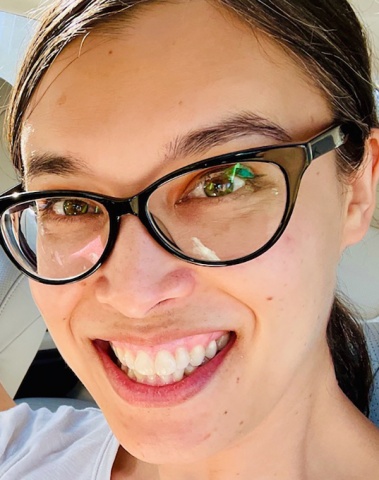
Amy Ko
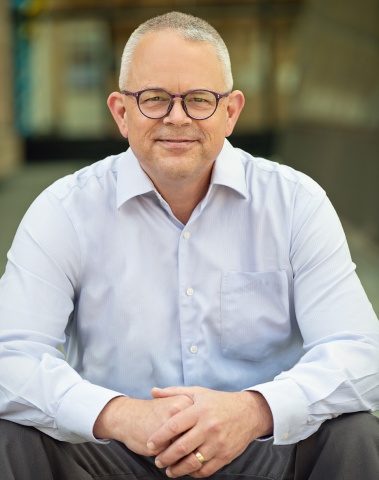
Tim McKay
University of Michigan
McKay’s team has applied observational and experimental data science methods to astrophysics, cosmology, and education. They have probed the growth of cosmic structure as well as the expansion history of the Universe, especially through studies of galaxy clusters and gravitational lensing. They have discovered prompt optical counterparts to gamma-ray bursts. Since 2008, they have been using classroom and institutional data to make higher education more equitable, inclusive, and effective. In the last few years, McKay has helped to launch the Foundational Course Initiative, the Sloan Equity and Inclusion in STEM Introductory Courses (SEISMIC) project, and the Mellon College and Beyond II study.
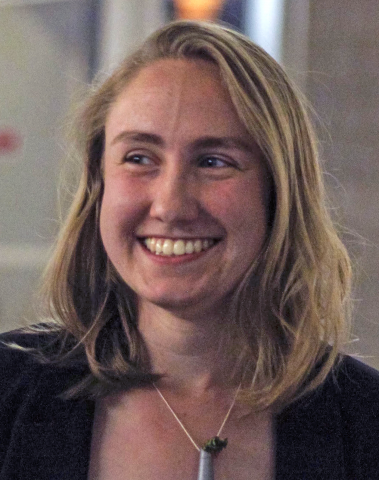
Johanna Okerlund

José Zayas-Castro
Zayas-Castro’s main research interests are in healthcare systems engineering, manufacturing systems, engineering entrepreneurship, and economic and cost systems. He has experience with small businesses as well as partnerships with industry, non-profit foundations, and international organizations. Zayas-Castro received his bachelor's degree in industrial engineering from UPRM, and his master’s in industrial and management engineering, master’s in business administration, and doctorate in management from Rensselaer Polytechnic Institute.
Zayas-Castro is a Fellow of the Institute of Industrial and Systems Engineers, a member of the Pan-American Academy of Engineering, and is also very active in the Institute for Operations Research and Management Science (INFORMS). Among his numerous awards, in 2006 he received the Bernard M. Gordon Prize for Innovation in Engineering and Technology Education. He has been recognized for mentoring, advising, and diversity initiatives.
Our Moderator

Alec Gallimore
STPP's Work in Public Interest Technology
STPP has built institutional capacity to expand the public interest technology (PIT) pipeline at the undergraduate and post-PhD levels. We are working with the Michigan Institute for Data Science (MIDAS) and Division of Computer Science and Engineering to revise the computer science (CS) curriculum for University of Michigan’s (U-M) undergraduate program, the largest in the country, with an emphasis on social justice and equity. The Rethinking CS Education working group includes an interdisciplinary team of faculty, students, and a postdoc.
We also serve as a bridge across communities and have hired a postdoctoral fellow with a computer and data science background and interests in data ethics, social and racial justice, and governance. They have received training to equip them for a PIT position in academia, industry, civil society, or government.
Have any questions?


